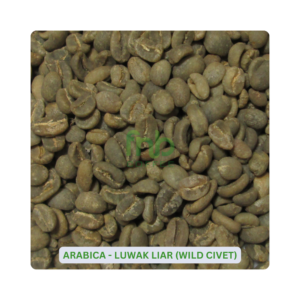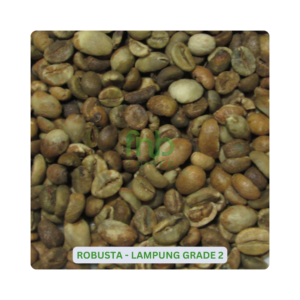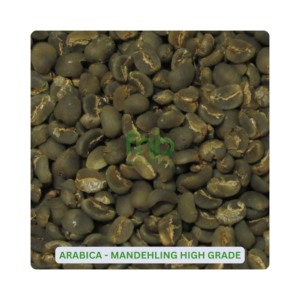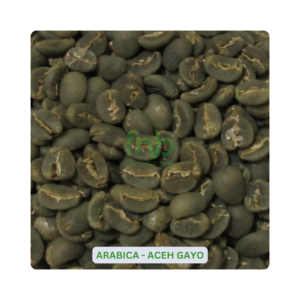

Raw coffee beans are the seeds of the coffee plant, harvested before they undergo the roasting process that makes them familiar to us as the dark, aromatic coffee we enjoy every morning. But can you eat raw coffee beans? Some people may be curious about their flavor and possible health benefits, while others may wonder if it’s safe to consume them in their natural state.
In this article, we explore the risks, benefits, and safety tips for eating raw coffee beans, helping you make an informed decision.
Table of Contents
ToggleRaw coffee beans are packed with nutrients, making them more than just a source of caffeine. They are rich in antioxidants, particularly polyphenols, which are known for their anti-inflammatory and anti-cancer properties.
They also contain several vitamins and minerals, including:
Read also: 5 Tips How to Start a Coffee Brand
Raw coffee beans have gained attention for their potential health benefits. Some enthusiasts suggest that consuming them can have similar, if not better, effects than drinking coffee. Here’s a look at the possible benefits:
The caffeine in raw coffee beans acts as a stimulant, improving focus and concentration. This is one of the primary reasons many people consume coffee.
When you eat raw coffee beans, you can experience a more prolonged and sustained energy boost due to the higher caffeine content.
Raw coffee beans are also believed to have several health benefits, thanks to their high antioxidant levels. Some studies suggest that the antioxidants in raw coffee beans can help reduce the risk of chronic diseases such as heart disease and cancer.
Additionally, these antioxidants may help in reducing inflammation and promoting better overall health.
Some proponents of raw coffee beans claim that they can help with weight loss. The chlorogenic acid found in raw coffee beans has been shown to potentially aid in fat burning and improving metabolism.
These compounds may contribute to increased fat oxidation and reduced fat accumulation, helping in weight management.
While raw coffee beans may offer some health benefits, there are also several risks associated with eating them. It’s essential to be aware of these potential drawbacks:
Raw coffee beans are tough and difficult to chew, and their high fiber content may lead to digestive discomfort. Eating too many raw coffee beans can irritate your stomach, leading to bloating, indigestion, or constipation. It’s essential to consume them in moderation.
As mentioned earlier, raw coffee beans contain higher caffeine levels than roasted coffee. Consuming large quantities of raw coffee beans could result in excessive caffeine intake, leading to side effects such as jitteriness, increased heart rate, insomnia, or even anxiety.
It’s essential to regulate your caffeine consumption to avoid these unwanted effects.
Just like any raw food, raw coffee beans can potentially carry bacteria or fungi. If not handled correctly, they can pose a contamination risk.
It is essential to ensure that raw coffee beans are sourced from reputable suppliers and stored properly to reduce the risk of contamination.
If you’re interested in trying raw coffee beans, it’s important to consume them in a way that ensures safety and minimizes potential risks. Here are some tips on how to safely incorporate raw coffee beans into your diet:
While raw coffee beans can offer several benefits, moderation is key. Start with a small amount, such as 1 to 2 raw coffee beans per day, and observe how your body reacts.
If you experience any adverse effects, such as digestive discomfort or increased heart rate, reduce your intake.
To make raw coffee beans easier to consume, you can grind them into a powder or crush them into smaller pieces. This will help break down the tough exterior and make it easier to digest.
You can also add the ground raw beans to smoothies, protein shakes, or other recipes for a more enjoyable experience.
If you’re new to eating raw coffee beans, it’s essential to take it slow. Start with small amounts and gradually increase the quantity if you don’t experience any adverse effects.
Make sure to buy high-quality raw beans from reputable suppliers and store them in a cool, dry place to maintain their freshness and reduce the risk of contamination.
In conclusion, while raw coffee beans can offer several health benefits, including enhanced focus and potential weight loss assistance, they also come with risks, such as digestive issues and excessive caffeine intake. It’s essential to consume them in moderation and follow safety tips, including starting with small amounts and choosing high-quality beans.
By understanding both the benefits and the potential risks, you can make an informed decision on whether raw coffee beans are a suitable addition to your routine.
Yes, raw coffee beans can be eaten without roasting. However, they are tough and may be difficult to chew. They also contain higher caffeine levels than roasted beans, which could result in stronger effects.
Raw coffee beans contain chlorogenic acid, which may help in reducing fat accumulation and boosting metabolism. However, more research is needed to confirm its effectiveness for weight loss.
Yes, raw coffee beans have a much milder and more bitter taste compared to roasted coffee beans. The roasting process enhances the flavor and aroma, making it more enjoyable for most people.
It’s recommended to start with 1 to 2 raw coffee beans per day. Consuming too many can lead to adverse effects due to high caffeine content.
Yes, raw coffee beans contain caffeine, which acts as a stimulant to improve focus and energy. They may provide a more sustained energy boost compared to regular coffee.
Interested in buying Indonesian Green Coffee Beans? Call us on WhatsApp anytime at +62 811 6171 777 or email info@fnb.coffee




FnB Coffee Indonesia 专门从事印尼绿色咖啡豆的批发供应。我们专注于企业对企业的批发和批量分销,确保我们的全球客户只收到最优质的印尼咖啡豆。
© 2025 印尼 FnB 咖啡版权所有,保留所有权利。
雅加达办事处
Gedung Menara Sentraya, lantai 39, Jl. Iskandarsyah Raya No.Melawai, Kec.Kebayoran Baru, Jakarta Selatan 12160。
仓库
Jl Medan - Binjai.Mulyorejo
Kec.Sunggal, Kabupaten Deli Serdang
苏门答腊岛20351
种植园
Boangmanalu Salak
Kec.萨拉克,巴帕克巴拉特区
苏门答腊岛22272
特种咖啡加工计划
Desa Pondok Balik
Kec.Ketol, Kabupaten Aceh Tengah、
亚齐24566